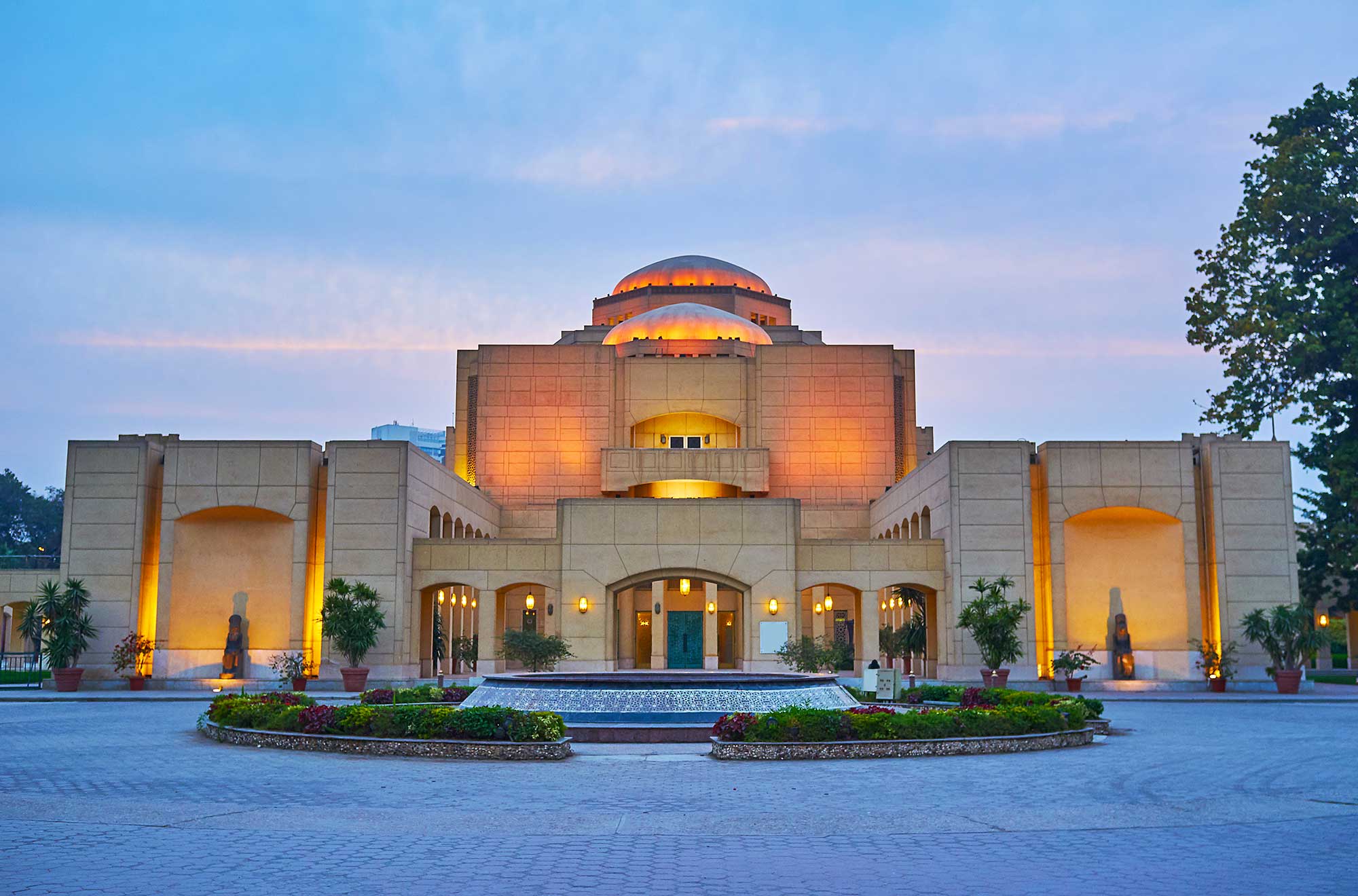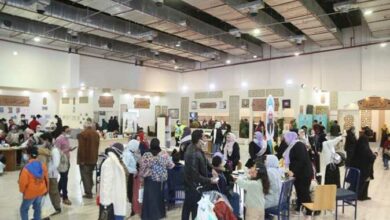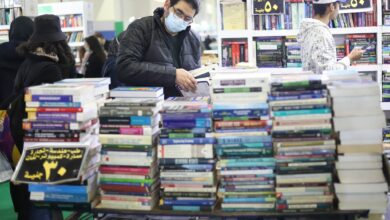Since February, publishers and booksellers have been trying to fill the hole left behind by the cancellation of the 43rd annual Cairo International Book Fair, the region’s single largest bookselling event.
In its place, several private and public book fairs have sprung up: Azbakeya booksellers banded together to offer discount books in March, and the AUC Press also organized a book fair in March and April at their Tahrir campus. The state’s General Egyptian Book Organization (GEBO) has sponsored two smaller book fairs: one on Faisal Street during Ramadan and a second “Arab Book Fair” at Al-Gezira Garden this month.
Several more bookselling events – including two sponsored by the state in the Upper Egyptian cities of Sohag and Assiut, and two organized by AUC Press – are planned for the remainder of the year.
Bibliophiles and local residents have generally been pleased by the make-up fairs. Faisal resident Cathy Costain said that she went to the Faisal fair a couple times “and quite enjoyed it.” She added, “It was nice to have some culture for a change – once you get past Giza Square there’s nothing except the Badrakhan Bookshop, the Chinese Cultural Centre, and the various Pyramids! Glad to hear it will be repeated next year.”
However, Costain also admitted that she “didn’t actually buy any books.”
And while fair-goers have been enthusiastic, booksellers have been less excited.
Karim Amir Sobhy, owner of the Anglo Egyptian Bookshop, said that the Faisal fair was “held precisely for people who live in the neighborhood, [whereas] the Cairo International Book Fair is visited by all Egyptians, whether they’re interested in books or not. People see it as a place in which they hang out.”
But Ahmed Salah, head of the GEBO committee that organizes the various fairs, said that the International Book Fair wasn’t for all Egyptians. Despite its nearly two million attendees, Salah said the fair was too elitist.
“The Cairo International Book Fair is… one way to demonstrate the level of local publishing and intellectual production on the international scene,” Salah said. “In the past, we focused on promoting a specific image of Egypt; yet locally, we expected the people to come to us. This is changing though; and the Faisal fair is one step toward prioritizing greater local outreach. From the comments we got from local community members, it seems that the Cairo fair is perceived as an elitist event that they rarely visit.”
Salah blamed the limited sales at Faisal on publishers and seminar moderators. “We organized the fair at Faisal to target the average Egyptian. But many of the panel and seminar moderators were unable to communicate with the local community members attending, as their educational backgrounds and interests were very different from the usual audience at the Cairo fair.”
Some publishers, however, see things differently.
The Islamic Zad Al-Maad Bookshop did not participate in the Faisal book fair. Shop-owner Mohamed Mostafa Al-Said told Al-Masry Al-Youm that he would not participate in any book fair nowadays because “the current financial state of Egyptians does not allow them to buy books.” He was also worried that, in light of ongoing security fears, he might lose valuable book stock.
Ahmed Amin Mahmoud Al-Abein, owner and founder of the Academic Bookshop, was pleased by how things went for him at Faisal and decided to participate in the Al-Gezira fair as well. However, several booksellers complained that the Al-Gezira fair was not marketed well enough, and that sales were still small.
AUC Press’s associate marketing director, Trevor Naylor, said that the press participated neither in the Faisal nor Al-Gezira fairs, as both were primarily Arabic-language events. However, he was filled with excitement about the press’s own fall book fairs.
The first is in the southern suburb of Maadi, in conjunction with Adam Bookshop, in the grounds of the Community Services Association, on 18 and 19 September between 9 am and 3 pm.
The second is to be another Tahrir fair. This event, he said, would probably be held in “the first week of December.” He imagined that the fall Tahrir fair would be much like the one AUC Press organized in the spring, which had around 50 vendors. Only, this time, publishers would have much more time to organize. “We want to have as much activity – bookselling and music – as we possibly can.”
As with the Faisal book fair, Naylor envisions this as an ongoing event, although not one to compete with the Cairo International Book Fair.
“We have a certain size that we have to work within,” he said. However, he hopes it will be something “that’s on everybody’s calendar.”
Publishers and booksellers have expressed a range of hopes and fears for next year’s big book fair.
Abein hoped that the forthcoming fair would be held in a large venue, and Sobhy also expressed reservations about the Cairo International Conference Center, where it is generally held. Said complained about the fair’s general lack of organization.
A number of publishers, including Dar al-Shorouk, have called for a professional organization to take over management of the fair, much as the Frankfurt Book Fair took over the fair in Abu Dhabi. But Salah seems to think otherwise, and expressed utmost trust in local organizers, whom he described as “experts in the field.”
The Cairo International Book Fair will be held on time next January, Salah confirmed, although the details of the fair and any measures that might be taken to make it less “elitist” remain unknown.
Naylor is, in any case, enthusiastic about the upcoming big book fair.
“It’s a huge anniversary,” he said. “It’s going to be huge. And there’ll be two years of pent-up need to buy books. We’re very excited about that. It should be a real celebration.”




